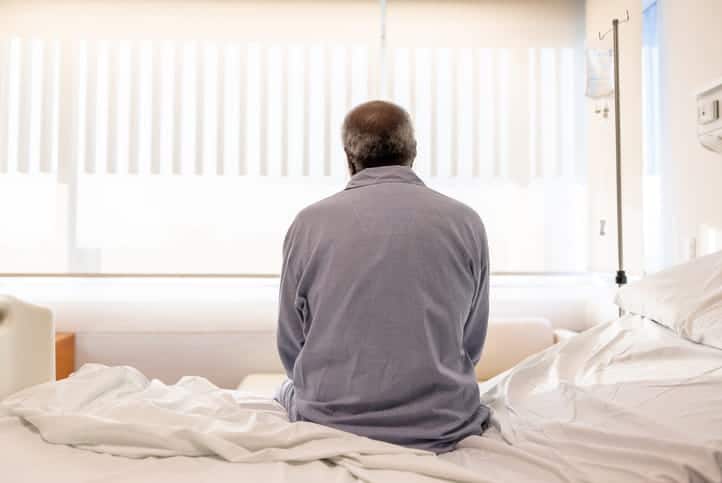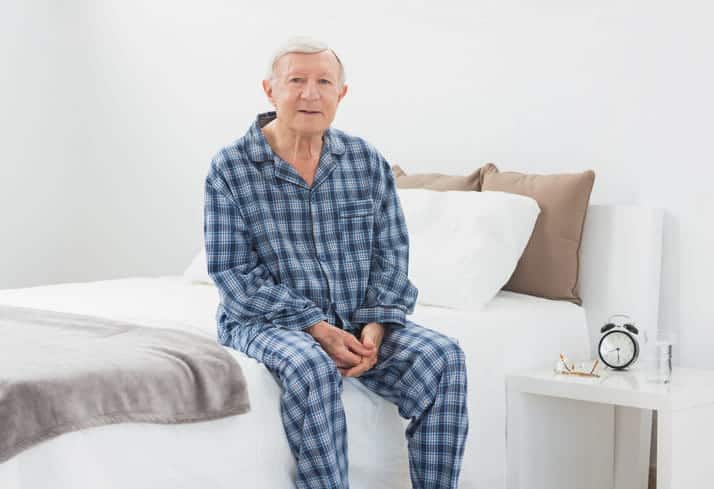
While some may think being tired more often is a normal part of getting older, that isn’t necessarily true. Getting older makes quality sleep more complicated and frustrating, but that doesn’t mean the elderly should accept being tired and not strive for a good night’s rest. According to the Centers for Disease Control and Prevention (CDC), over one in five (20.3%) Americans 65 or older have trouble staying asleep. This likely contributes to being tired throughout the day. Keep reading to learn more about elderly sleep information and tips on improving sleep in seniors.
Are you looking for an assisted living facility in Arizona? Check out Haven Health for comprehensive and individualized care today.
How Many Hours of Sleep Does a 70–80-Year-Old Need?
According to the National Institute of Aging (NIH), seniors need 7-9 hours of sleep every night.
What Is the Most Common Sleep Issue for Elderly People?
The most common sleep disorder amongst the elderly is insomnia, according to the NIH. Other disorders that negatively affect sleep are more likely as we age, such as sleep apnea and restless leg syndrome.
Why Is It Harder To Sleep When You Get Older?
According to the Sleep Foundation, many things can contribute to trouble sleeping for the elderly, such as:
- Having to get up to urinate at night more frequently (in men, this could be an issue with the prostate)
- Pain and discomfort from other underlying conditions, such as arthritis
- Possible medication side effects
- Too much napping
- Less ability to spend time outdoors can affect the circadian rhythm (aging can also change the circadian rhythm), making it more difficult to sleep
- Neurological/psychiatric issues such as Alzheimer’s disease, heart disease, diabetes, arthritis, anxiety, and depression are all more common in the elderly and can all cause sleep disturbances
Related: Dental Care Tips for Elderly Individuals
How To Develop Better Elderly Sleep Habits
According to the National Council on Aging (NCOA), a good night’s rest is vital to our health. Sleep deprivation can affect your mood and your ability to concentrate and has been linked to obesity, stroke, depression, heart disease, and kidney disease.
The following tips may improve your sleep quality:
Seek Professional Medical Advice
If you follow these tips and are still struggling to sleep, seek medical advice. Checking in with your doctor to ensure there isn’t a medical reason for your trouble sleeping is crucial. If you’re struggling with depression, anxiety, insomnia, snoring, etc., be sure to seek medical advice ASAP. In cases of emotional distress, cognitive behavior therapy may do wonders. Whereas, if you have undiagnosed sleep apnea, you’re putting your health at great risk by not getting diagnosed and treated.
Stick to a Sleep Routine and Schedule
The NIH recommends getting up and going to sleep at the same time every day, as well as developing a nighttime routine for unwinding. Nighttime routines should include:
- Avoiding electronic screens (especially ones that emit blue light)
- A relaxing activity such as reading, taking a bath, listening to calming music, or meditating to wind down before bed
Create the Ideal Sleep Environment
While it seems counterintuitive, most people don’t always make their sleep space the most conducive to sleep. Things such as comfort, lighting, and tidiness can all affect whether or not your bedroom creates the ideal environment for falling asleep.
A bedroom that aids in elderly sleep habits should:
- Be kept tidy and clutter-free to avoid falls and allow easy access to the bathroom in the dark
- Be kept at or under 70 degrees
- Contain a mattress, pillows, bedding, etc., that is comfortable and doesn’t cause any next-day stiffness
- Have varied lighting for wind down time and block out all outside light for sleep
- Be kept quiet
Watch What You Consume During the Day
While some drinks and foods do aid in concentration, consuming the following things too close to bed can make it more difficult to fall asleep, according to the NCOA:
- Heavy meals or snacks
- Caffeine
- Alcohol
- Nicotine
Avoid or Limit Naps
Avoiding napping, or at least limiting naps to less than an hour and never late in the day, can help ensure being tired at bedtime.
Try To Stay Active Every Day
Being active can help with better mental health and burn off excess energy. The NIH recommends exercising every day around the same time, but never within three hours of going to bed.
Related: Vision and Hearing Care Tips for the Elderly
Contact Haven Health for Assistance

Since many assume that changing sleep patterns and increased tiredness are normal parts of aging, it can be difficult to find senior citizen sleep information. Unfortunately, this tends to lead to elderly sleep importance being overlooked. By improving sleep quality, seniors can live healthier lives. If you or a loved one’s trouble with sleep is related to pain, mobility issues, or emotional distress, be sure to contact a senior care facility like Haven Health to discuss your physical therapy and behavior therapy options.
Are you looking for an assisted living facility near you? Contact Haven Health today and ask about our extensive inpatient and outpatient care services.
Sources:
A Good Night’s Sleep. (2020).
Aging and Sleep. (2023).
6 Sensible Sleep Tips for Older Adults. (2023).
Sleep Difficulties in Adults: United States, 2020. (2022).